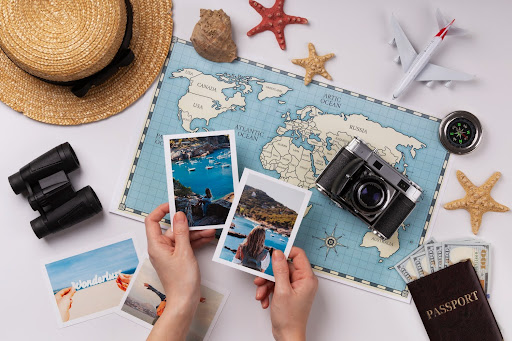Free photo freepik.com
Travel is no longer a matter of crossing borders. It’s an act of navigating layered systems—logistical, digital, even psychological. The reasons we move have diversified, but so have the frictions that shape our journeys. Visas may be approved instantly, but connectivity can lag behind. Flights become cheaper, but language, local regulations, and ethical dilemmas can complicate the path.
In today’s landscape, the traveler isn’t a wanderer but a negotiator—of systems, currencies, identities. A decade ago, travel blogs highlighted “hidden gems.” Now, the hidden elements are within ourselves: how to stay reachable without being surveilled, how to document without extracting, how to explore without consuming.
The Rise Of Itinerant Stability
One paradox defines modern travel: people move more often, but want their movements to feel consistent. Remote work created an entire subset of nomadic professionals. They live months at a time in temporary cities, seeking reliable Wi-Fi more than picturesque views. Local culture is now filtered through productivity apps, airport lounges, and adjustable time zones.
But what does it mean to belong somewhere you’re leaving? Digital nomads rent local apartments but rarely vote or pay taxes in those places. This isn’t tourism—it’s a mobile pause, anchored by routine rather than roots. Still, the lines blur. A coworking space in Bali might offer kombucha and tax consulting. A traveler in Georgia might take a business call while climbing a hilltop monastery.
Travel As Strategy, Not Escape
Gone is the idea that travel is merely a break from daily life. For many, it’s a tactical shift. Some move to escape inflation or seek more affordable healthcare. Others cross oceans for a better educational system for their kids. Mobility has become a form of financial literacy.
A growing number of travelers plan routes based on digital service access, political neutrality, or even crypto regulation. It’s not uncommon to hear discussions about VPNs and dual citizenship alongside local cuisine. For these travelers, border crossings are not disruptions but recalibrations. The suitcase is not just packed with clothes, but with backup SIM cards, external drives, and multi-currency wallets.
The Fiction Of Spontaneity
The allure of “getting lost” in a new city still exists—but it’s curated. Apps suggest where to wander, and reviews predefine what is “authentic.” Adventure becomes a task, not a discovery. When everything is mapped, spontaneity becomes a simulation, with outcomes known before departure.
Still, not all spontaneity disappears. A delayed train or misread sign can still lead to unplanned joy—or unplanned expense. In these moments, travel regains its old uncertainty. And for some, that’s part of the appeal. Not everything can be scheduled, and that gap between control and chaos is where memory takes shape.
When Travel Intersects With Games Of Chance
Not all travel experiences are planned down to the last detail. For some, spontaneity includes risk—and not just the kind found in transit delays. A small subset of travelers intentionally integrates chance into their journey: street games, foreign lotteries, pop-up competitions, or even discreet online gambling. In this vein, platforms like Vave Casino Betting occasionally pop up as part of travel stories—not as destinations, but as interludes that mirror the unpredictability of the road itself.



